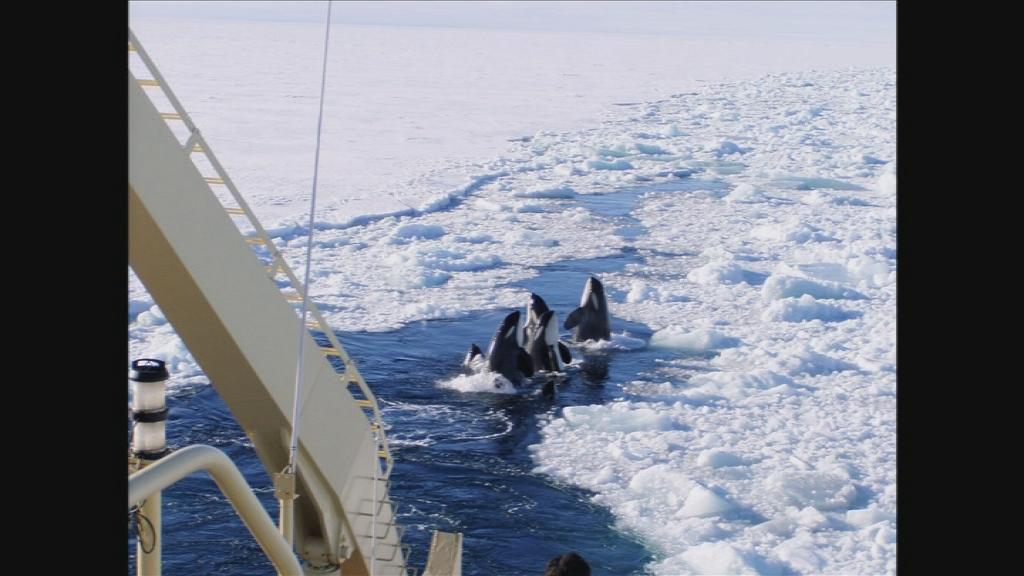Swiss pushes issue of climate refugees

Any result in Copenhagen should include the issue of people forced to leave their homes by climate change, Walter Kälin tells swissinfo.ch.
The United Nation’s representative for internally displaced persons and professor of law at Bern University sees no alternative, adding that whatever the outcome in the Danish capital, an agreement must be reached in the long term.
On Friday world leaders attempted a final push to agree a new global climate pact.
Finding money to help poor nations cope with climate change and shift to clean energy seemed to be the issue where negotiators at the 193-nation conference could claim most success. The text under discussion early on Friday included the $100-billion-a-year goal, to be achieved by 2020.
Delegates spoke of resolving disputes behind closed doors between developed and developing countries, the divide that has dogged the two-week UN climate conference from the beginning.
swissinfo.ch: What is your role in Copenhagen?
Walter Kälin: I’m here in my capacity as the United Nation’s representative on the human rights of internally displaced persons. Humanitarians and people involved with human rights are very concerned by the rapid increase in the number of people displaced by natural catastrophes: hurricanes and droughts etc. It is obvious that in regions such as Central America and East Africa we’re dealing with the consequences of climate change.
swissinfo.ch: Is the issue of displaced people being given sufficient consideration in Copenhagen?
W.K.: We hope so. We’ve been lobbying for a year to include an article which underlines the humanitarian consequences – including displacement and migration –of climate change. The measures of adaptation will help reduce displacement and give displaced people the means to rebuild their lives.
We’re relatively optimistic. An article on [climate refugees] is part of the discussions in Copenhagen and we’ve seen very positive reactions from many governments – from the North and the South.
swissinfo.ch: Does the UN have sufficient resources to deal with the problem of climate refugees?
W.K.: No, of course not. There are 12 million refugees at a global level, and 25 million people displaced by armed conflicts and violence. Last year alone we counted 36 million people displaced by natural catastrophes. Many were able to return home after a relatively short period, but it demonstrates the scale of the problem.
With current resources, humanitarians are not in a position to support and assist the people and governments involved. This is why we’re convinced that it’s absolutely vital to include the humanitarian consequences in the discussion of basic adaptation measures. Significant means are necessary to help governments protect and aid displaced people. At the same time additional funds are required for international organisations.
swissinfo.ch: Would it help if the status of climate refugee existed legally?
W.K.: To talk of climate refugees is to talk of people who leave their country. They become strangers in a host country where they are not legally citizens. People who are displaced internally, within their own country, remain citizens and they must not lose any of their rights. In their case, speaking of refugees is problematic.
For people who have to cross borders the situation is different. They’re not covered by the 1951 convention on the status of refugees. That’s also problematic. There is no legal framework to protect them. An article incorporated into the tool which, I hope, will be adopted here in Copenhagen would give a basis for a more detailed and technical discussion on sorting out the status of these people.
swissinfo.ch: Who would be to blame were Copenhagen to fail?
W.K.: The governments – and not any one government in particular. But I would hesitate to talk of failure. Climate change is an extremely complex issue. Interests differ enormously. Discussions take time. I’m convinced that a failure in Copenhagen would not mean the end of the discussion. We would go through a crisis before starting again and putting exactly the same questions back on the table. That’s because we’re dealing with challenges for humanity, and no one can allow themselves to simply write that off.
swissinfo.ch: Is the UN framework still the right approach for the climate change problem?
W.K.: I can’t speak for all the United Nations. One must distinguish between the political system and the states on the one hand and the more technical organisations such as the refugee agency or the development programme. The agencies have a good understanding of the size and reality of the climate challenge. But every government must be included, and the UN is the only framework that truly enables this. I see no alternative.
Pierre-François Besson in Copenhagen, swissinfo.ch (Translated from French by Thomas Stephens)
Nearly 200 countries are meeting in Copenhagen until December 18, trying to reach a global agreement to follow or extend the Kyoto Protocol, which runs out at the end of 2012.
Climate scientists say the world has between 10 and 20 years to reverse the upwards trend in greenhouse gas emissions. If this is not achieved, it will be difficult for humans to adapt to the consequent destabilisation of the climate.
The aim for Copenhagen is to reduce greenhouse gas emissions so that temperatures do not rise globally by more than two degrees in comparison with the pre-industrial age.
The IPCC (Intergovernmental Panel on Climate Change) says industrialised countries need to reduce their emissions by 25 – 40% of their 1990 levels by 2020.
It has called on the rich nations to reduce their greenhouse gas emissions by 80 – 95% by 2050, and developing countries by 50%.
The Swiss government proposes that Switzerland should reduce its emissions by 20% of their 1990 level by 2020.
Switzerland is prepared to increase its target to 30%, depending on what happens at Copenhagen.

In compliance with the JTI standards
More: SWI swissinfo.ch certified by the Journalism Trust Initiative






You can find an overview of ongoing debates with our journalists here. Please join us!
If you want to start a conversation about a topic raised in this article or want to report factual errors, email us at english@swissinfo.ch.